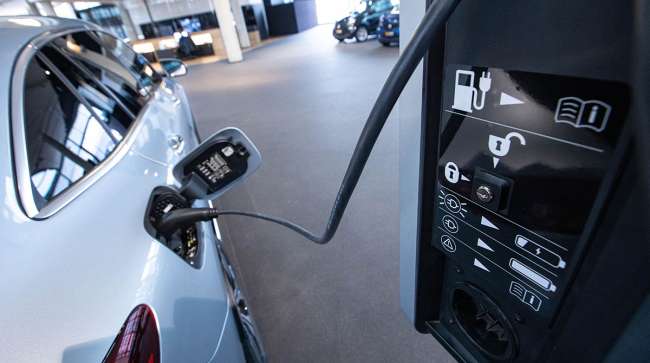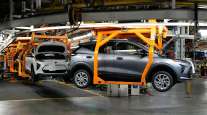Bloomberg News
Germany Backs EU Phaseout of New Combustion Engines by 2035

[Stay on top of transportation news: Get TTNews in your inbox.]
Germany threw its weight behind a European Union proposal that only emission-free new cars and vans can be sold from 2035 as the bloc moves forward in talks on an ambitious green overhaul at a time of an extraordinary energy crisis.
EU environment ministers discussed cars and other proposals to reduce emissions at their quarterly meeting in Brussels. Talks on the draft law to ban internal combustion engines showed that some countries wanted to be more ambitious, with the Netherlands and Belgium calling for a phaseout target of 2030.
Discussions about the so-called Fit for 55 package, which aims to implement EU’s goal of cutting greenhouse gases by at least 55% by 2030, have become particularly tough in recent months due to soaring energy costs aggravated by the Russian invasion of Ukraine. Member states are seeking to reach an agreement on proposals from cutting car emissions to imposing a carbon price on road transport and heating.

Host Michael Freeze speaks with TMC Chairman Randy Obermeyer and Brenda Neville of the Iowa Motor Truck Association about how to recruit young drivers and technicians. Hear a snippet above, and get the full program by going to RoadSigns.TTNews.com.
German Environment Minister Steffi Lemke said the ruling coalition in Berlin supports the EU executive arm’s plan “in all its points.” The three-party formation had previously avoided setting a hard target for banning polluting vehicles, saying instead that it backs the EU’s goal of only selling “carbon-neutral” new vehicles in Europe by 2035 while pledging to support cars that can run on e-fuels.
“This ultimately means that combustion engines for cars and delivery vans will be phased out from 2035,” Lemke told reporters in Brussels before talks with EU counterparts.
The issue is particularly fraught in Germany, where the auto industry dominates and manufacturers have dragged their feet for years on electric vehicles. The country didn’t join a pledge at the COP26 climate talks last year to only sell zero-emission vehicles by 2035.
Want more news? Listen to today's daily briefing above or go here for more info
France, which holds the rotating presidency of EU, is looking to reach a package deal on member states’ negotiating mandate for talks with Parliament before the summer.
Meanwhile, Sweden, Denmark, the Netherlands and Germany threw their weight in favor of a separate emissions trading system to cover road transport and buildings, while a group of countries including Poland and Slovakia warned against the costs such a mechanisms would introduce. The latter is looking at proposing an alternative that would reduce the threshold for eligibility in the current carbon trading system while introducing a carbon tax at national level for road transport.
“Ambitious sectoral standards are vital to reduce dependency on imports of fossil fuels for transport and buildings, and phasing out new vehicles with internal combustion engines as of 2030 is a key priority,” said Rob Jetten, Dutch minister for climate and energy. “We have no time to waste.”
— With assistance from Ewa Krukowska.




